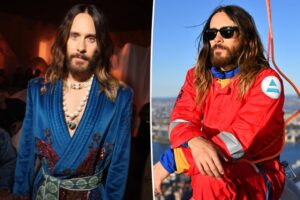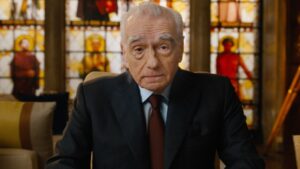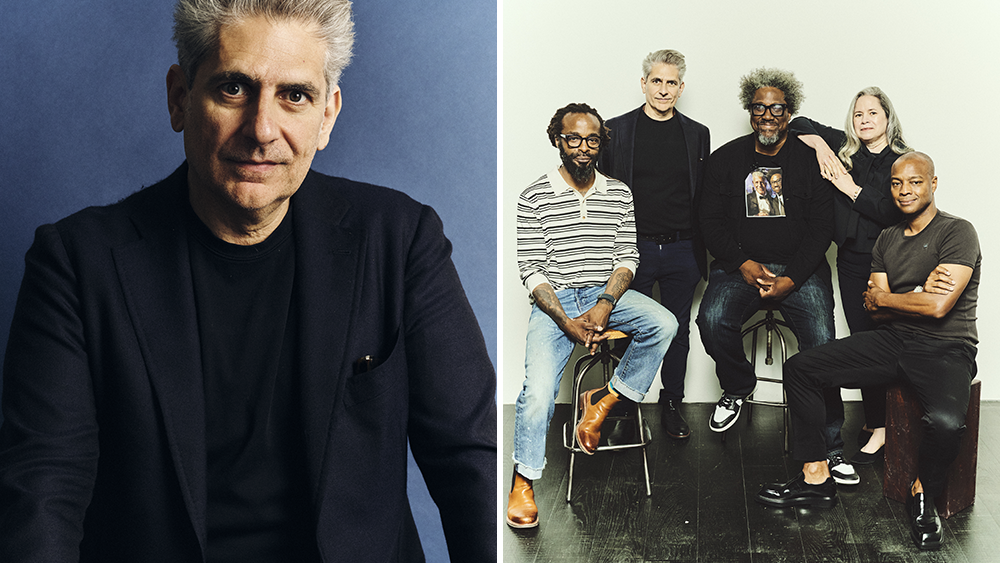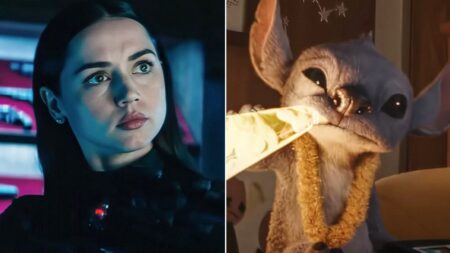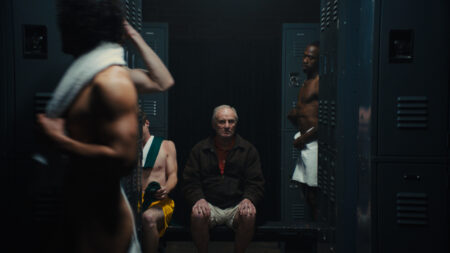When a bright-eyed, 17 year-old Michael Imperioli first moved to New York City in the early ’80s, just as he was beginning to find his footing in East Village’s buzzing arts scene, he strolled into St. Mark’s Books and picked up a book that would change his life forever: “The Diamond Sutra.”
The historic Buddhist text, written in India sometime in the 2nd century CE and believed to be the world’s earliest printed books, isn’t exactly the literary fare you’d expect to capture the fascination of a teenager in ’80s downtown New York — a subset more likely to be reading the likes of Bret Easton Ellis, J.D Salinger and William S. Burroughs. But when Imperioli’s favorite writer Jack Kerouac, another rising literary star at the time, announced his dedication to the Sutra manuscript, and even pledged to read it every single day after reorganizing it into seven daily readings, Imperioli picked up the book — and never looked back.
The exact paperback still sits on a bookshelf in his Upper West Side home to this day.
Contour by Getty Images

Getty Images
“There are not a ton of writers that stay with you your whole life,” Imperioli, who is now a practicing Buddhist, tells me at Spring Studios at Tribeca Film Festival, which is premiering this week a documentary about the legendary beats writer. Directed by Ebs Burnough, “Keruoac’s Road: The Beat of a Generation,” examines how Kerouac’s iconic novel “On the Road” continues to resonate in contemporary America, retracing the writer’s restless journey through the eyes of a few of his most well-known admirers such as Josh Brolin, W. Kamau Bell, Natalie Merchant and Imperioli.
For the “Sopranos” actor, the 1957 autofictional novel serves as a metaphor for life, undeniably influenced by the Buddhist tenets that Kerouac lived by. “This journey that we’re on from birth to death, and being open to experiences, being open to others,” he says pensively. “Especially right now, in this moment in this country particularly, we’ve been whipped into a frenzy of tribalism and division and generalization, and people lumped in camps.”
He hopes that with the help of this doc that a younger generation will pick up Kerouac’s books to “inspire them, in a literal sense, to experience that kind of trip, that kind of travel, and openness to other people or other cultures.”
At the bare minimum, he says, he hopes it pushes them to “read just for the sheer pleasure of great literature.”
Ahead of the premiere of “Keruoac’s Road: The Beat of a Generation” at Tribeca Film Festival, Variety chatted with Imperioli about his love for literature, Buddhism, politics and his thoughts on a rapidly-changing New York.
What was your first introduction to Jack Kerouac, and why does he resonate with you?
There are not a ton of writers that stay with you your whole life, or adult life. He’s the one who I’ve gone back to and reread a lot of stuff and a lot of compassion always came through. And a certain open heart towards other people, towards life and towards experience — especially towards other people. And that always came through really, really strong, as well as his incredible skill as a writer and his exciting way of expressing himself that was really very new for American literature.
He would watch bebop jazz musicians improvising and stuff like that, and trying to make that work in literature and fiction. But it’s really that open heart and I think it’s really consistent throughout all his work and his poetry and his novels. He’s always kind of been like a guide post in a world where an open heart and compassion is rare sometimes, unfortunately.
What do you think this younger generation can learn from Kerouac’s way of life and his writing?
I think ‘On The Road’ is obviously a metaphor for life, really. This journey that we’re on from birth to death, and being open to experience, being open to others. I mean, especially right now, in this moment in this country particularly, we’ve been whipped into a frenzy of tribalism and division and generalization, and people lumped in camps. If someone doesn’t agree with your view on something, you don’t want to deal with them. You’re against them, and they’re a lot more complicated than you know.
I love to be surprised. I like when my presuppositions get turned upside down and proven wrong because often we have preconceived ideas about people and what they’re going to be like and what they think. And to be surprised is a good thing. So hopefully this book will inspire people, in a literal sense, to maybe experience that kind of trip, that kind of openness and travel, openness to other people or other cultures even, and at a minimum, maybe have young audiences or people who haven’t been exposed to him. Pick up his books and read just for the sheer pleasure of the great literature.
How does your spirituality inform your views on today’s tumultuous political landscape?
Well, from the Buddhist perspective, everything changes. Everything changes and nothing is perfect. So in that sense, you can be hopefully optimistic that people change and learn from their mistakes and learn from difficulties. And Buddhism teaches that everyone has enlightened nature inside them and that’s really their true nature – an unadulterated, unaffected mind, devoid of thought and habitual patterns. It’s pure and open and limitless and all those things. So Buddhists teach you that everyone has Buddha nature.
But it’s very difficult in this world. Because I think it’s really hard, right? Being exposed to information 24/7. I don’t think we’re meant to process that much information. It’s kind of impossible. You know, there’s always been problems in the world and there always will be. But we have to find a way to navigate and still be brothers and sisters and fathers and mothers and friends and colleagues and all those things. We have to find a way to do that.
You bought your first Kerouac book at 19 at St. Mark’s Books. There’s a lot of discourse right now about how much St. Marks has changed in the past few years. As a native New Yorker, what are your thoughts on how much the city has changed?
The sad thing about the change in New York is that it’s gone from a city where individuals can own businesses — be it a restaurant, a bookstore, clothing store, whatever — and moved into businesses that are run by corporations. That’s a big difference. So you start to lose that real idiosyncrasy and uniqueness. That’s the sad part of the crazy economics of this city.
The economics make it difficult. The thing about businesses being owned by individuals or families, things like that. Losing that is rough. It’s really sad because you’re not replacing it with that, you’re replacing it with corporate stores and even restaurants that are owned by groups, rather than some guy who opened a place with his daughter or something. I still love the city to death. It’s still New York. It’s different, but I do really love it.
You also grew up in the punk rock scene in New York as a musician. What do you miss most about that era?
I think the music scene in New York is actually much better than it was at, like, the beginning of the century.
Really?
I mean not the beginning. So like 2000, there was some good things happening. And then by 2010, it was horrible, right? But now it’s much better. I don’t know. I don’t know why. Younger people are more…. Because it’s so expensive, you have to be really serious about what you’re doing, which is a good thing and a bad thing I guess.
Do you know The Dare?
No. Should I?
No.
Read the full article here
